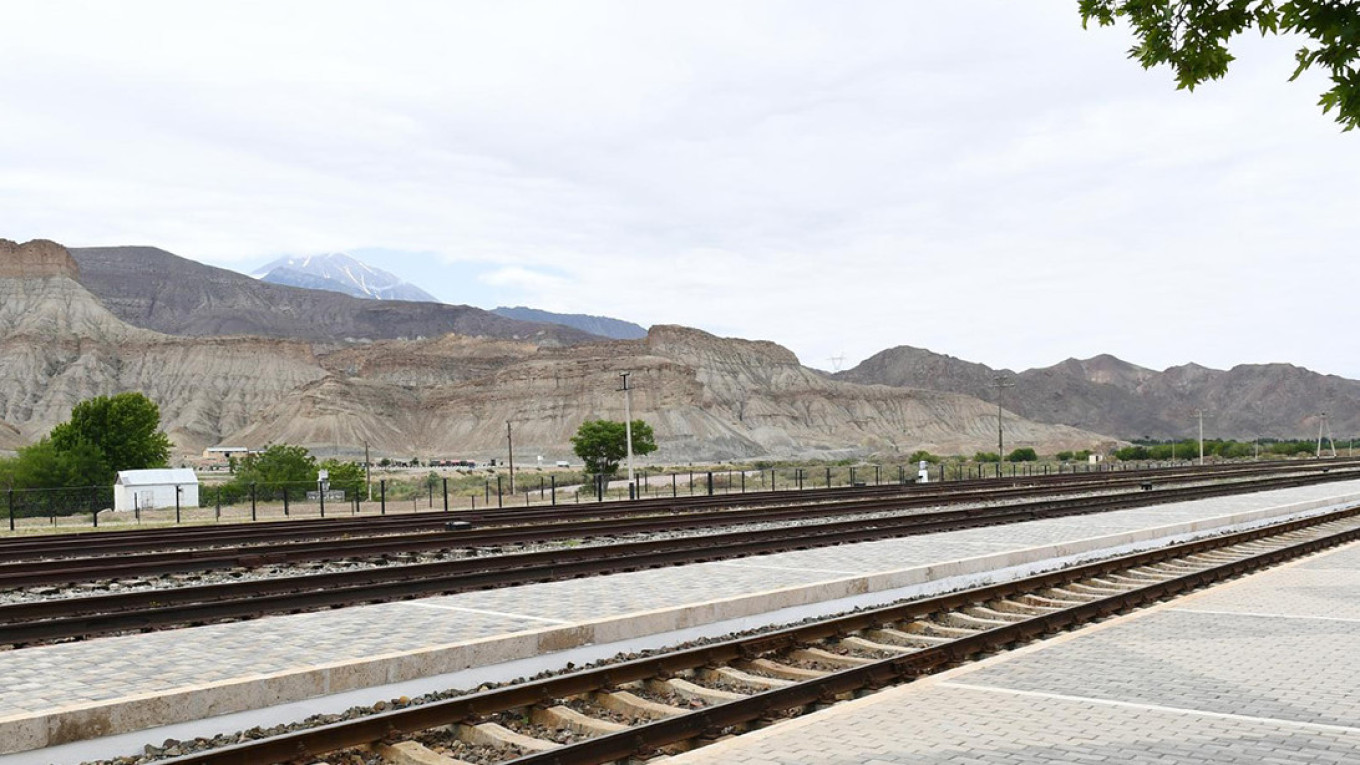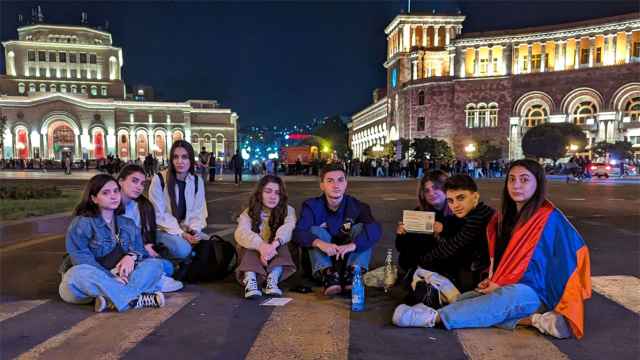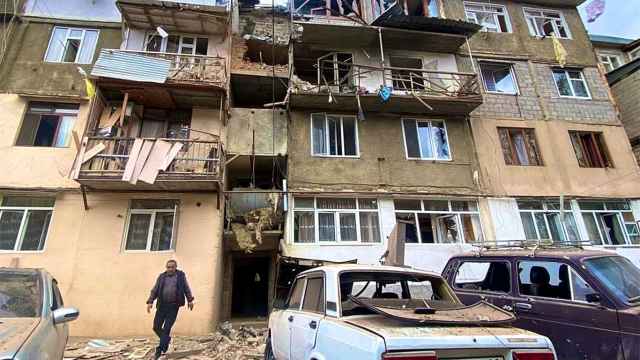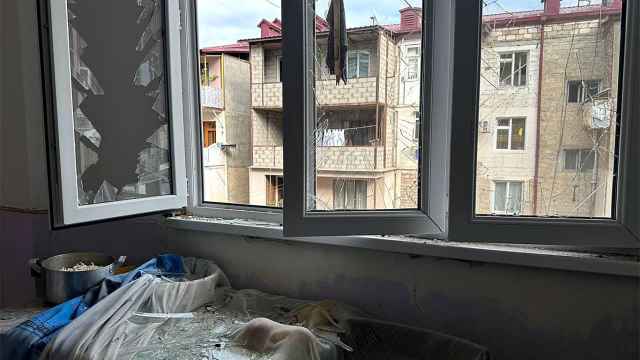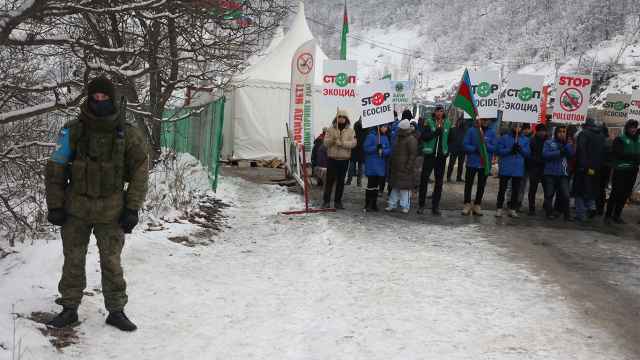While Ukraine’s Western allies warn of the deepening cooperation between Russia and Iran, tensions between these two Eurasian powers are being tested in the South Caucasus.
Moscow’s push for Baku’s Zangezur Corridor project — an unimpeded transit route connecting mainland Azerbaijan to its Nakhchivan exclave and then to Turkey through Armenia’s Syunik province — has rekindled anxiety in Tehran.
Following recent comments by Russian Foreign Minister Sergey Lavrov and Foreign Ministry spokesperson Maria Zakharova regarding the reopening of regional transportation routes based on the Nov. 10, 2020, agreement between Moscow, Baku, and Yerevan, Iran’s political leadership has begun to criticize Russia openly. Lavrov notably rebuked Armenia, accusing Yerevan of backtracking on the 2020 agreement, which stipulates that the corridor would be under the control of the Russian Federal Security Service.
“It is the Armenian leadership that is sabotaging an agreement signed by Prime Minister Nikol Pashinyan. It is difficult to understand the meaning of such a position,” Lavrov stated.
In response, Pashinyan announced that Russia could no longer mediate between Armenia and Azerbaijan. Meanwhile, Iran’s ambassador to Moscow lodged a formal protest, warning that creating the Zangezur Corridor would spark new tensions near Iran’s northern border with Armenia.
Additionally, Iran summoned the Russian ambassador to express its extreme dissatisfaction with Moscow’s stance. On Sept. 5, Iranian Foreign Minister Seyed Abbas Araghchi, referencing Russia's support for the corridor, wrote that any threat to the territorial integrity of Iran’s neighbors or altering their borders is “completely unacceptable” for Tehran.
The next day, Iran’s ambassador to Yerevan echoed this view, saying, “The dreams and aspirations of some [countries] regarding Armenia, including the corridor, will not become a reality. The territorial integrity of our neighbors is our red line,” underscoring Tehran’s perception of security threats from the situation.
Tehran’s reaction stems from the strategically important location of the proposed corridor. As Syunik borders Iran, Tehran fears the corridor could cut off its direct access to Yerevan and diminish its regional influence. Since the end of the Second Karabakh War in 2020, Baku, with Russia's tacit backing, has consistently pushed for the establishment of the corridor without Armenian checkpoints or customs controls.
In response to Baku’s increasingly aggressive rhetoric, Iran conducted war games near Azerbaijan’s border in 2021 and 2022, leading to a nearly three-year diplomatic crisis between the two countries. The strength of Iran’s reaction also signaled its willingness to escalate tensions with Baku to ensure the security of southern Armenia.
While Russian Foreign Minister Sergei Lavrov initially opposed Iran's military drills near the Azerbaijani border in 2021, Moscow remained in 2022. This is likely because of Russia’s dependence on Tehran for equipment to fight the war in Ukraine. This more assertive Iranian stance, combined with the deployment of the EU mission along the Azerbaijan-Armenia border, significantly bolstered Yerevan in resisting Baku’s ambitions. The idea of the corridor further lost traction after Azerbaijan took full control of Nagorno-Karabakh in 2023.
Moscow has long regarded the South Caucasus as its backyard, seeking to maintain a monopoly over regional affairs. In the context of its ongoing invasion of Ukraine, Russia now sees the proposed Zangezur Corridor as a way to reclaim its fading influence in Armenia and reestablish its key role as a crucial transit hub vis-à-vis the West.
In contrast, Yerevan, having effectively distanced itself from the CSTO and strengthened its ties with the EU and the U.S., views the corridor as a threat to its sovereignty and strongly opposes any Russian control over it. Armenia's Foreign Ministry recently confirmed that discussions about the possibility of a private company managing the route are underway. Although Baku has officially dropped its demand for the Zangezur Corridor from the peace talks with Armenia, the Kremlin is now trying to bring the issue back to the forefront.
Historically, Moscow has not shied away from provoking Tehran, such as keeping Syrian airspace open for Israeli airstrikes on Iranian positions and siding with the UAE over the three islands in the Persian Gulf. Additionally, Russia is delaying signing a 20-year comprehensive cooperation agreement with Iran, despite Tehran’s support in the Ukraine conflict. Now, with new sanctions on Iran following reports of its supply of ballistic missiles to Russia, Moscow's disregard for Tehran's concerns in the South Caucasus has started to frustrate the Islamic Republic.
These events, which have largely escaped broader attention, highlight the significant divergences between Russia and Iran’s interests, despite their growing cooperation. This rift also presents an opportunity for increased Western engagement in the region. Of course, if Moscow were to control such a key transportation corridor, which could greatly improve connectivity between Central Asia and Europe, it would pose a direct challenge to Western interests.
Given their shared concerns about Russian ambitions in the South Caucasus, this situation could foster a level of cooperation between Western countries and Tehran, potentially opening new diplomatic channels that could be beneficial in other matters as well. Notably, Iranian and French ambassadors to Armenia have already held several meetings to discuss the security situation in southeastern Armenia in light of a possible Azerbaijani offensive.
It is worth adding that Iran’s new reformist president, Masud Pezeshkiyan, has openly criticized Tehran’s eastward-looking strategy and advocates for improving relations with Europe while also seeking to reduce tensions with the U.S.
Heshmatollah Falahatpisheh, the former chairman of the Iranian Parliament’s National Security and Foreign Policy Committee, has argued that Vladimir Putin’s push for the establishment of the Zangezur Corridor is a “preemptive move” designed to pressure Tehran, aiming to prevent Pezeshkian's administration from opening "communication channels" with Washington.
It is clear that Moscow and Tehran are reliant on each other, economically and politically. However, recognizing such deep-rooted differences in their interests — differences that are unlikely to be resolved — would create more space for the much-needed Western engagement in the South Caucasus.
A Message from The Moscow Times:
Dear readers,
We are facing unprecedented challenges. Russia's Prosecutor General's Office has designated The Moscow Times as an "undesirable" organization, criminalizing our work and putting our staff at risk of prosecution. This follows our earlier unjust labeling as a "foreign agent."
These actions are direct attempts to silence independent journalism in Russia. The authorities claim our work "discredits the decisions of the Russian leadership." We see things differently: we strive to provide accurate, unbiased reporting on Russia.
We, the journalists of The Moscow Times, refuse to be silenced. But to continue our work, we need your help.
Your support, no matter how small, makes a world of difference. If you can, please support us monthly starting from just $2. It's quick to set up, and every contribution makes a significant impact.
By supporting The Moscow Times, you're defending open, independent journalism in the face of repression. Thank you for standing with us.
Remind me later.



